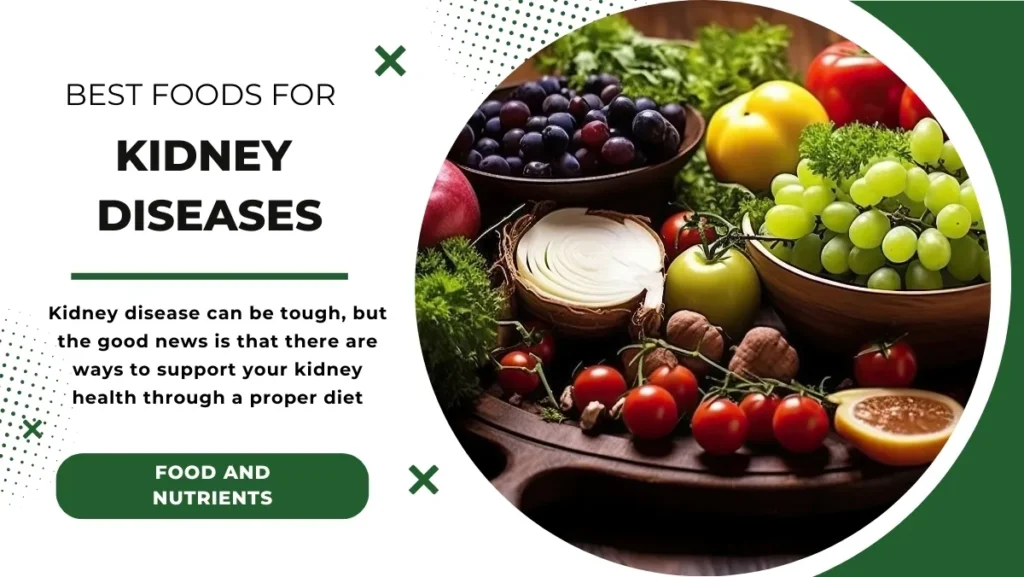
When you have kidney disease, your kidneys are no longer functioning at their best. This means they struggle to filter out waste and balance fluids and electrolytes in your body. A kidney failure diet plan is essential to support the kidneys and reduce their workload. Diet plays a critical role in managing kidney disease, and knowing what foods to eat can help protect your kidneys and overall health.
When we talk about the Best Foods for Kidney Disease, it’s important to focus on foods that are gentle on the kidneys, packed with nutrients, and lower in elements like potassium and phosphorus. While diet cannot reverse kidney disease, the right foods can help manage symptoms and potentially slow its progression.
Cauliflower is a nutrient-rich vegetable that is low in potassium, making it a great choice for those with kidney disease. It is high in vitamin C, folate, and fiber. You can enjoy cauliflower steamed, roasted, or even mashed as a substitute for mashed potatoes.
Blueberries are one of the Best Foods for Kidney Disease because they are high in antioxidants and low in potassium. They are packed with vitamin C and fiber, which support overall health while being kind to your kidneys.
Sea bass is an excellent source of omega-3 fatty acids, which have anti-inflammatory properties. It’s a great option for a low protein diet for kidney patients because it provides essential proteins without overloading the kidneys.
Red grapes are another great choice for those following a kidney failure diet plan. These little fruits are high in vitamin C and antioxidants like flavonoids, which help reduce inflammation and support cardiovascular health.
If you’re looking for a high-quality protein that’s easy on the kidneys, egg whites are an excellent choice. They are lower in phosphorus compared to egg yolks, making them a better option for those with kidney issues.
Garlic is a wonderful way to add flavor to your meals without relying on salt. For people with kidney disease, limiting sodium is essential, and garlic provides a tasty alternative.
Olive oil is rich in healthy fats and antioxidants, making it a great choice for those with kidney disease. It’s a versatile oil that can be used in cooking, salad dressings, or even drizzled over vegetables.
Cabbage is a leafy green vegetable that's great for kidney health because it’s low in potassium, phosphorus, and sodium. It's also high in vitamins and minerals, making it a nutrient-dense food for those on a kidney failure diet plan.
Onions are another excellent seasoning option for those on a kidney-friendly diet. Like garlic, they can add flavor to your meals without adding extra salt, making them ideal for those who need to manage their sodium intake.
Managing kidney disease can feel overwhelming, but incorporating the Best Foods for Kidney Disease into your daily meals can make a significant difference. Foods like cauliflower, blueberries, and sea bass provide essential nutrients while being gentle on the kidneys. Whether you're following a low protein diet for kidney patients or simply aiming to eat healthier, the right food choices can help support your kidney health. Always consult with your healthcare provider or a nutritionist to tailor a diet for kidney disease patients that fits your specific needs.
Foods rich in antioxidants and anti-inflammatory properties, such as blueberries, cauliflower, and sea bass, can support kidney health. These foods are low in potassium and phosphorus, making them ideal for individuals with kidney disease. Consuming foods like garlic, olive oil, and red grapes can also help reduce inflammation and support kidney function. While these foods can’t cure kidney disease, they are part of a healthy diet that may slow its progression.
People with kidney disease should avoid foods that are high in potassium, phosphorus, and sodium. Some top foods to avoid include:
Always consult with a healthcare provider to ensure you’re eating the right foods for your condition.
Foods that are high in sodium, potassium, and phosphorus can put extra strain on the kidneys and should be limited. Processed foods, fast foods, salty snacks, and sodas are harmful to kidney health. Additionally, overconsumption of protein can cause further kidney damage. Stick to foods that support kidney health and avoid those that are high in these elements to prevent worsening of kidney disease.


Risus quisque rutrum himenaeos pharetra habitasse primis torquent nibh feugiat vivamus turpis viverra finibus ligula
Copyright © 2024 Kidney Transplant. All rights reserved.
Designed and Developed By Cloudstar Digital